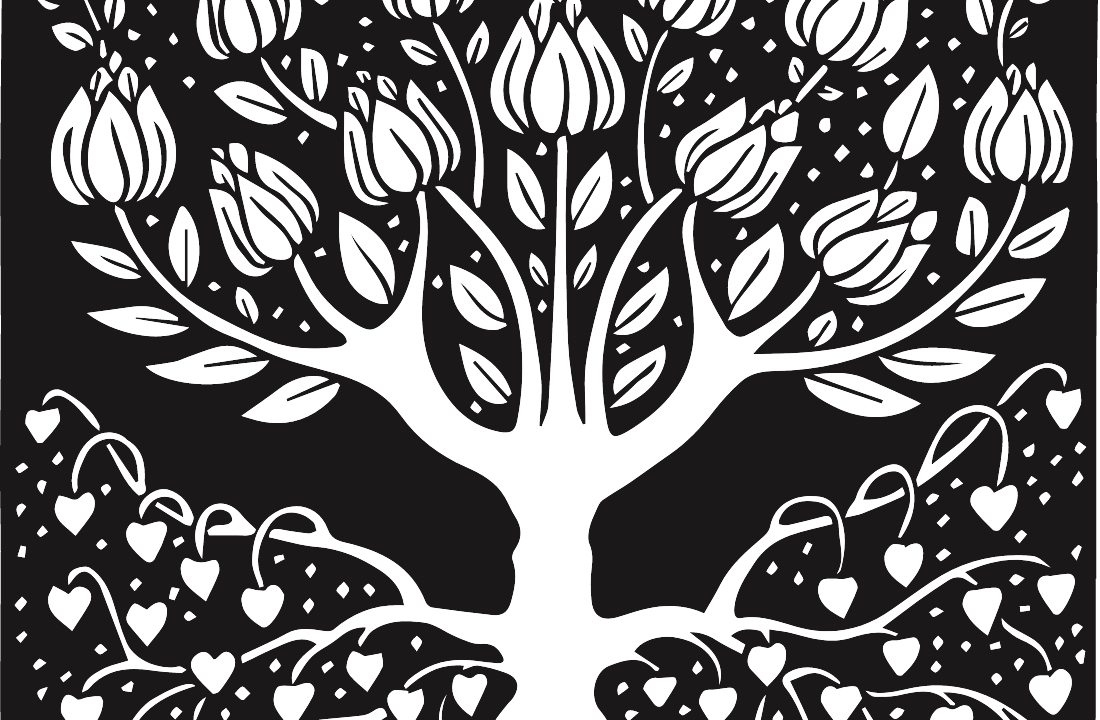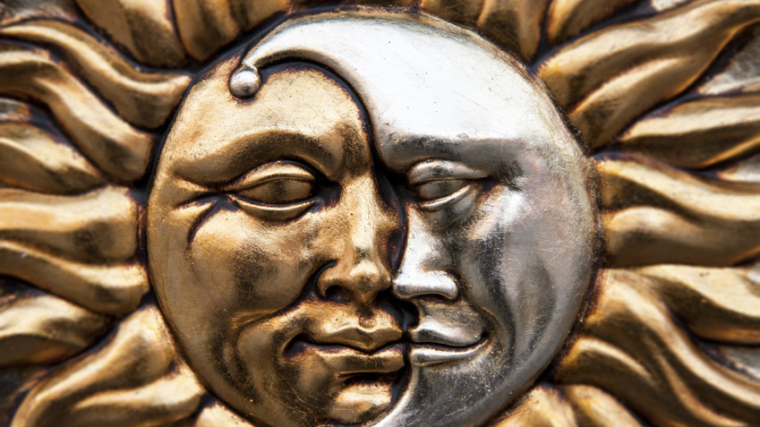Blue Cliff Record, Case 1
Emperor Wu of Liang asked the great master Bodhidharma, “What is the highest meaning of the holy truths?”
Bodhidharma said, “Empty, without holiness.”
The Emperor said, “Who is facing me?”
Bodhidharma replied, “I don’t know.” The Emperor did not understand. After this Bodhidharma crossed the Yangste River and came to the kingdom of Wei.
Later the Emperor brought this up to Master Chih and asked him about it. Master Chih asked, “Does your majesty know who this man is?” The Emperor said, “I don’t know.”
Master Chih said, “He is the Mahasattva Avalokiteshvara, transmitting the Buddha Mind Seal.”
The Emperor felt regretful, so he wanted to send an emissary to go invite Bodhidharma to return. Master Chih told him, “Your majesty, don’t say that you will send someone to fetch him back. Even if everyone in the whole country were to go after him, he still wouldn’t return.”
Book of Serenity, Case 2
Emperor Wu of Liang asked Great Teacher Bodhidharma, “What is the highest meaning of the holy truths?”
Bodhidharma said, “Empty — there’s no holy.”
The emperor said, “Who are you facing me?”
Bodhidharma said, “Don’t know.” The emperor didn’t understand.
Bodhidharma subsequently crossed the Yangste River, came to Shaolin, and faced a wall for nine years.
Dentoroku
Floating on the deep ocean for about three years, Master Bodhidharma reached the Southern Coast (of China) exactly on September 21st of the eighth year if P’u T’ung of the Liang dynasty (527 A.D.).
Hsia Kai, Governor of Kuang State, received him with royal etiquette and sent a written message reporting the news to Emperor Wu.
When the Emperor received this report, he dispatched a messenger with an imperial mandate of invitation. On October 1st the Master arrived at Chin Ling [which was then the capital.]
The Emperor declared, “Since my accession to the throne, temples have been built, scriptures copied, and monks saved without number. What kind of merit has been accumulated?”
The Master replied, “No merit.”
The Emperor asked, “Why no merit?”
The Master explained, “(Such deeds) bear but small fruits in the human and heavenly [worlds], and are causes of births and deaths. They are like shadows following objects. They look as if they exist but have no reality.
The Emperor asked, “Then what is true merit?”
The Master answered, “The pure wisdom is wonderfully complete, and the nature of its essence is immaterial. Such merit as this is not to be sought by worldly [means].”
Again the Emperor asked, “What is the first principle of the Sacred [Teaching]?”
The Master replied, “It is vastness itself. There is nothing holy.”
The Emperor demanded, “Who is it speaking to me?”
The Master answered, “I don’t know.”
The Emperor could not understand these words of the Master.
Realizing that [the Emperor’s] nature was not in accord with his own, the Master secretly crossed (from the Northern Empire) to the South of the River on the 19th of that month. On November 23rd he arrived at Loyang. It was then the tenth year of the reign of Emperor Hsia Ming of the Later Wei dynasty (of the Southern Empire).
Reflections
This koan is framed by two dialogues. The first, between the emperor Wu and Bodhidharma; the second, between Wu and his attendant, Shi. Each dialogue consists of four points.
First, Wu and Bodhidharma.
- What is the holy teaching?
- Empty and not holy.
- Who are you.
- Don’t know.
Second, Wu and Shi
- Who was that?
- Avalokiteshvara.
- Get him back.
- Once gone, he won’t come back.
Later, after Bodhidharma’s death, Wu still stinging with remorse at having missed his opportunity, wrote the following inscription on Bodhidharma’s monument.
Alas! I saw him without seeing him, I met him without meeting him, I encountered him without encountering him; now as before I regret this deeply.
If your mind exists, you are stuck in the mundane for eternity; if your mind does not exist, you experience wondrous enlightenment instantly.
Finally, in his notes, Sekida points out that in the original Japanese text Bodhidharma’s response to Wu’s “Who are you?” is “Fu Shiki.”
Which, of course, comes from the Heart Sutra. Fu is Not. Shiki is form (or color), or consciousness.
And so the translation of Bodhidharma’s response to Wu’s question can be phrased, “I am nothing.” The turn is from the negative statement that he doesn’t know who he is to the positive one that indeed he does know and that he knows that he is nothing. Or, pointing again to the major teaching of the Heart Sutra, that he is empty—lacking intrinsic being—that he is a concatenation of parts and shreds and patches each conditioned and developed from other shreds and patches back to eternity. And so rather than giving Wu a gruff disrespectful answer, which is the usual take on Bodhidharma’s response, he is indeed giving Wu the heart of Mahayana teaching, namely, emptiness. This interpretation is confirmed by Shi’s response to Wu’s repeated question after Bodhidharma left, “Who was that man?” And Shi response is Avalokiteshvara. Avalokiteshvara, Bodhisattva who, doing deep prajña paramita perceived the emptiness of all five conditions and was freed of pain.
This takes us to the teaching of the first question and answer between Wu and Bodhidharma.
What is the holy teaching?
Empty, and not holy.
Bodhidharma declares the wonderful teaching of emptiness, which is not something high and mighty or special and stinking with holiness. Rather it is quite ordinary. Ordinary is the Way. It is to be found everywhere. In fact upon sitting deeply with emptiness, as Avalokiteshvara did, you find emptiness to be the interstitching of all creation. Wherever you look, whatever stone you upturn, there you will find emptiness. Emptiness of wonder and beauty and form and color and sunrise and crescent moons and mighty mountains and roaring seas and thunder and lightning and the smile on the face of a baby and the wonder in her eyes and the heartache at the loss of a loved one all beautiful and sad and full and intense and empty.
These for me are some of the suggestions I find in this most fittingly first koan of the Blue Cliff Record.
Emperor Wu of Liang asked the great master Bodhidharma, “What is the highest meaning of the holy truths?”
Bodhidharma said, “Empty, without holiness.”
The Emperor said, “Who is facing me?”
Bodhidharma replied, “I don’t know.” The Emperor did not understand. After this Bodhidharma crossed the Yangste River and came to the kingdom of Wei.
Later the Emperor brought this up to Master Chih and asked him about it. Master Chih asked, “Does your majesty know who this man is?” The Emperor said, “I don’t know.”
Master Chih said, “He is the Mahasattva Avalokiteshvara, transmitting the Buddha Mind Seal.”
The Emperor felt regretful, so he wanted to send an emissary to go invite Bodhidharma to return. Master Chih told him, “Your majesty, don’t say that you will send someone to fetch him back. Even if everyone in the whole country were to go after him, he still wouldn’t return.”



